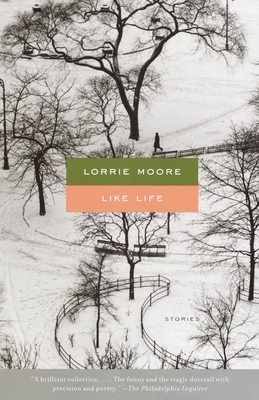I Curse the River of Time - Per Peterson
The pace of Per Peterson's I Curse the River of Time is incredibly misleading. The story of immature grown man facing the coming death of his mother is told in three different time frames. The novel slips easily between each and it doesn't feel necessarily important which one the reader might be in.
I say that the pace is misleading because it forever feels as if nothing is happening. The story is told with such a vague melancholy, the words and phrasing soft and slippery, such that you find that you've read many pages without noticing and without anything significant happening.
The book comes off slight, but the mood of it is so pure, so specific that the impression left is significant. This should not imply that the novel is shallow. Indeed, as should any book that is at its core about death, it gets deep. On the subject Peterson writes, "the very instant when you know that now comes what you have always feared, and you suddenly realize that every chance of being the person you really wanted to be, is gone forever, and the one you were, is the one those around you will remember."
While I Curse the River of Time is much different from Out Stealing Horses, it is well worth the easy read.
The pace of Per Peterson's I Curse the River of Time is incredibly misleading. The story of immature grown man facing the coming death of his mother is told in three different time frames. The novel slips easily between each and it doesn't feel necessarily important which one the reader might be in.
I say that the pace is misleading because it forever feels as if nothing is happening. The story is told with such a vague melancholy, the words and phrasing soft and slippery, such that you find that you've read many pages without noticing and without anything significant happening.
The book comes off slight, but the mood of it is so pure, so specific that the impression left is significant. This should not imply that the novel is shallow. Indeed, as should any book that is at its core about death, it gets deep. On the subject Peterson writes, "the very instant when you know that now comes what you have always feared, and you suddenly realize that every chance of being the person you really wanted to be, is gone forever, and the one you were, is the one those around you will remember."
While I Curse the River of Time is much different from Out Stealing Horses, it is well worth the easy read.




.jpg)

.jpg)













































